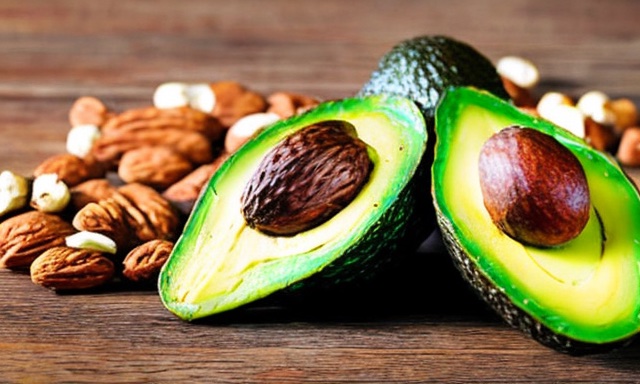Internet Asks: “Is Gluten Free Low Carb?”
Gluten-free and low-carb diets have gained popularity in recent years, but are they one and the same? Many people wonder if going gluten-free automatically means they are also following a low-carb diet. In this article, we'll dive into the gluten-free and low-carb realms, exploring their differences, similarities, and what it means for your dietary choices. Get ready to uncover the truth behind the gluten-free low-carb mystery!
sponsored links

The Gluten-Free Conundrum
Gluten is a protein found in wheat, barley, and rye. People with celiac disease or gluten sensitivity need to avoid gluten due to adverse reactions it can cause. This has led to a rise in gluten-free products and a misconception that gluten-free equals low-carb. However, that's not always the case.
Understanding Carbohydrates and Low-Carb Diets
Carbohydrates are a macronutrient found in various foods like grains, fruits, vegetables, and dairy products. They are the body's primary source of energy. Carbs can be divided into simple carbs (sugars) and complex carbs (starches and fibers).
Low-carb diets focus on reducing the intake of carbohydrates, primarily from sources like grains, starchy vegetables, and sugary foods. The goal is to encourage the body to burn stored fat for energy instead of relying on carbohydrates. Common low-carb diets include the ketogenic diet, Atkins diet, and other variations.
Gluten-Free vs. Low-Carb
While some gluten-free products are low in carbohydrates, gluten-free does not inherently mean low-carb. Gluten-free products often use alternative flours like rice flour, potato starch, or tapioca flour, which can be high in carbohydrates. Additionally, gluten-free products like bread, pasta, and baked goods may still contain a similar carb content as their gluten-containing counterparts.
sponsored links
Low-Carb Gluten-Free Options
If you're following a low-carb diet and need to avoid gluten, there are still plenty of options available. Here are some low-carb gluten-free alternatives:
- Non-Starchy Vegetables: Focus on incorporating a variety of non-starchy vegetables like leafy greens, broccoli, cauliflower, zucchini, and bell peppers into your meals. These veggies are low in carbs and provide essential nutrients.
- Protein Sources: Choose protein-rich foods such as lean meats, poultry, fish, eggs, and tofu. These options are gluten-free and low in carbs, making them suitable for both diets.
- Healthy Fats: Incorporate healthy fats into your diet, including avocados, nuts, seeds, and olive oil. These provide flavor, satiety, and essential nutrients while being gluten-free and low in carbs.
- Whole, Unprocessed Foods: Opt for whole, unprocessed foods whenever possible. These include fresh fruits, non-starchy vegetables, lean proteins, and healthy fats. These options are naturally gluten-free and can be adjusted to meet your low-carb needs.
Navigating Gluten-Free Low-Carb Eating
If you're looking to combine a gluten-free and low-carb approach, it's important to read labels and choose your foods wisely. Focus on whole, unprocessed foods and be mindful of gluten-free products that may still contain high levels of carbohydrates. Remember, consulting with a healthcare professional or registered dietitian can provide personalized guidance to help you achieve your dietary goals.
Enjoying a Gluten-Free Low-Carb Lifestyle
The gluten-free low-carb lifestyle can offer a range of benefits, from managing celiac disease or gluten sensitivity to supporting weight loss and improved blood sugar control. By understanding the differences between gluten-free and low-carb diets, you can make informed choices and enjoy a delicious, nourishing eating plan that meets your unique needs.
Disclaimer: The information provided in this article is for informational purposes only and should not be considered as medical or dietary advice. It is always recommended to consult with a healthcare professional or registered dietitian before making any significant changes to your diet or lifestyle. The author and the website are not responsible for any consequences that may arise from following the suggestions or recommendations mentioned in this article.
sponsored links
References
- Signos. Is Gluten-Free Low-Carb? Here’s What You Need to Know. https://www.signos.com/blog/gluten-free-low-carb
- Fit to Serve. What’s The Difference Between Gluten-Free And Keto? https://www.fittoservegroup.com/gluten-free-and-low-carb-similar-but-different/
- Atkins. Low-carb Foods. https://www.atkins.com/how-it-works/atkins-20/phase-1#low-carb-foods
- Celiac Disease Foundation. Sources of Gluten. https://celiac.org/gluten-free-living/what-is-gluten/sources-of-gluten/
- Harvard Health Publishing, Ketogenic Diet: Is the Ultimate Low-Carb Diet Good for You?. https://www.health.harvard.edu/blog/ketogenic-diet-is-the-ultimate-low-carb-diet-good-for-you-2017072712089
People are also reading...
Does Sprite Have Caffeine?
Calories In Steak?
Chicken Taco Calories?
Does Hot Chocolate Have Caffeine?
Are Carrots Acidic?
Are Mangoes Acidic?
Orange Juice pH?
Does Kahlua Have Caffeine?
Calories In a Grilled Cheese?
Is Watermelon Acidic?
6 oz Steak Calories?
Are Strawberries Acidic?
Ready to level-up?
Create meal plans 10x faster, follow up with your clients through our mobile app, and never struggle with meal planning or recipe management again.